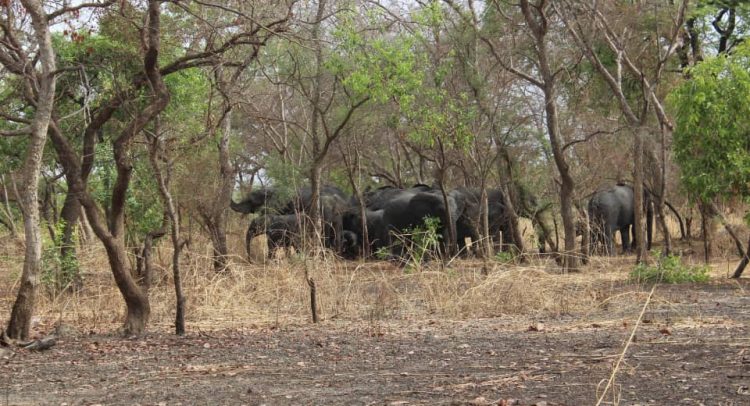AOur concern for local fauna and flora is almost non-existent. We hardly talk about how to protect these segments of mother earth without which our existence would be terminated eventually.
The scriptures of the two Abrahamic faiths – Christianity and Islam – have copious references to the two vis-a-vis our relationship to them. Unfortunately, while others in the vast world have enforceable legislations to protect these natural endowments, ours are but footnotes in our statutes dating back to colonial times in some cases.
It was gratifying though to note that an international rating of our wildlife stock at the Mole Game Reserve was impressive.
The Wildlife Division of the Forestry Commission needs to do more to raise awareness about the importance of protecting our wildlife stock. With little or no means of recording the numbers to determine a declining stock, the best we can do for now is to enforce the existing legislations and to educate the people, especially those on the fringes of game reserves and places with high-hunting habits.
There used to be an annual announcement about the closed season for hunting of certain species of wildlife but even then the rural folk who do most, if not all the hunting activities, hardly observe this legislation.
It would be appropriate to engage our traditional authorities in our efforts to conserve our wildlife stock. We know, for instance, that our traditional settings have days on which hunting and fishing are debarred. There are parts of the forests too designated off-limits for hunting, among others. These could be our ancestors’ means of protecting wildlife against excessive hunting and hence the depletion of nature’s endowment of fauna.
We acknowledge the efforts of the Wildlife Division of the Forestry Commission to protect our wildlife against the backdrop of the insatiable appetite by both rural and urban folks for so-called bush meat. If only we could limit our tastes to giant rodents like the grass-cutter whose production numbers are so vast that they are nowhere near extinction, we would have been better off.
Last week, the Wildlife Division announced the annual migration of elephants from their abode in the game reserves of Burkina Faso through parts of the Upper East Region in search of the raining season-induced lush grass in parts of the Eastern Corridor towards Togo.
We are aware about how in the course of the migration, farms are destroyed and sometimes lives threatened. We must be quick to add though that the Wildlife Division personnel have told farmers in the affected parts to steer away from farming along the designated routes and avoid risking destruction of their farms by the mammoths.
Unfortunately, the advice are hardly heeded hence the annual consequences befalling hard-eared farmers.
There are many countries which derive substantial amounts of foreign exchange from their enhanced wildlife stock through a healthy cooperation between wildlife managers and the locals. The tourism industry stands to gain a lot when we all join hands to protect our fauna from excessive and unsustainable hunting habits.
The ecosystem must be sustained just how God set it to be. Undue interference by man can cause serious consequences for our existence especially yet generations unborn when regulations to sustain the ecosystem are ignored or not implemented.


